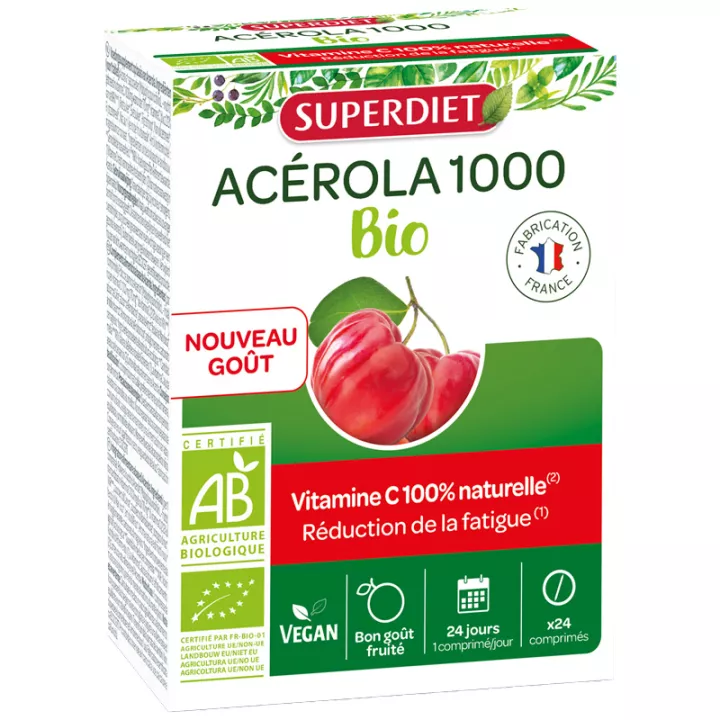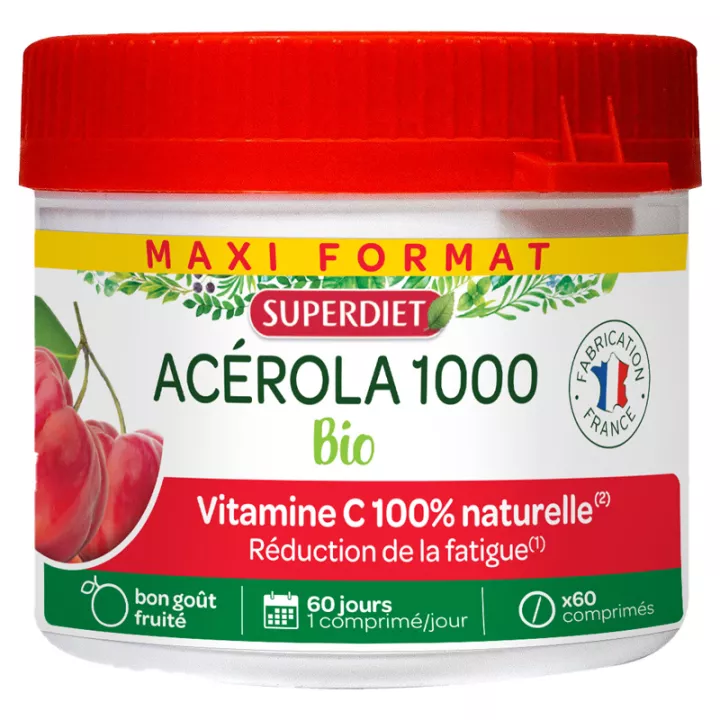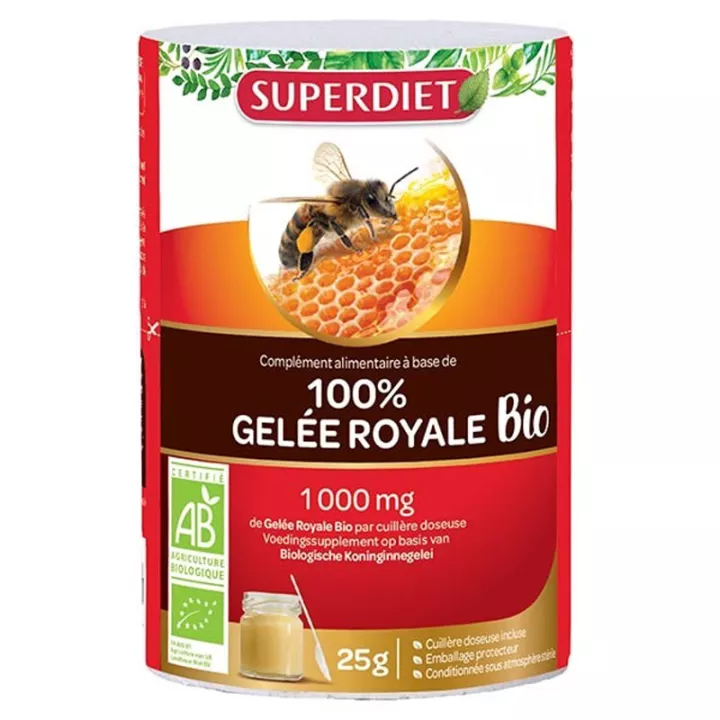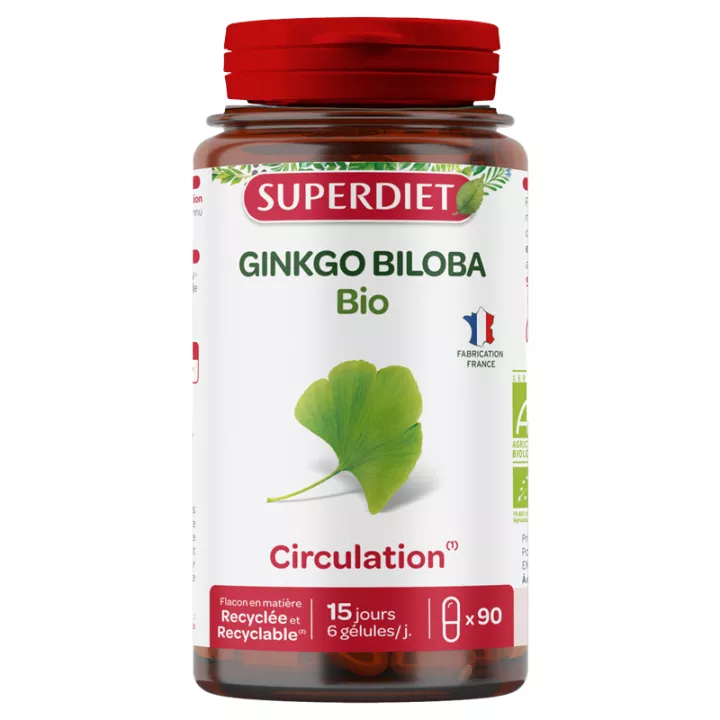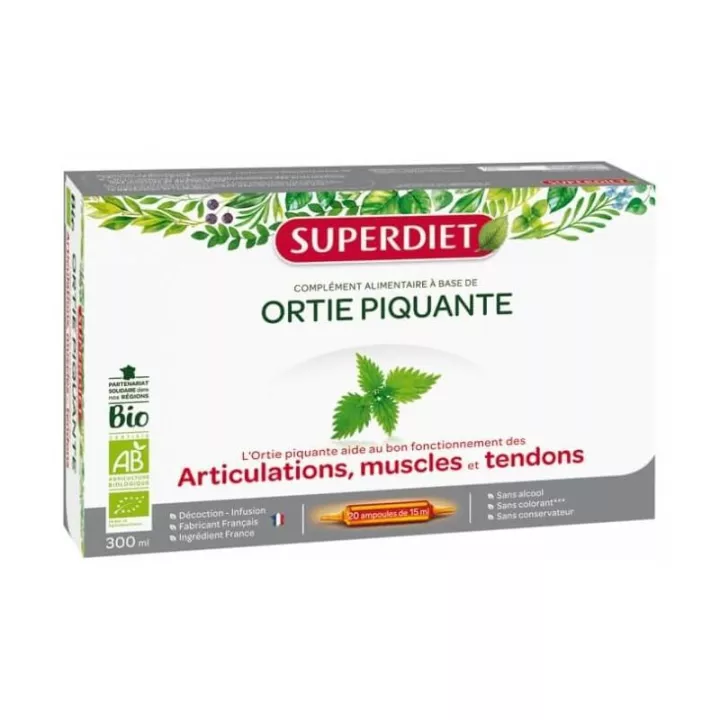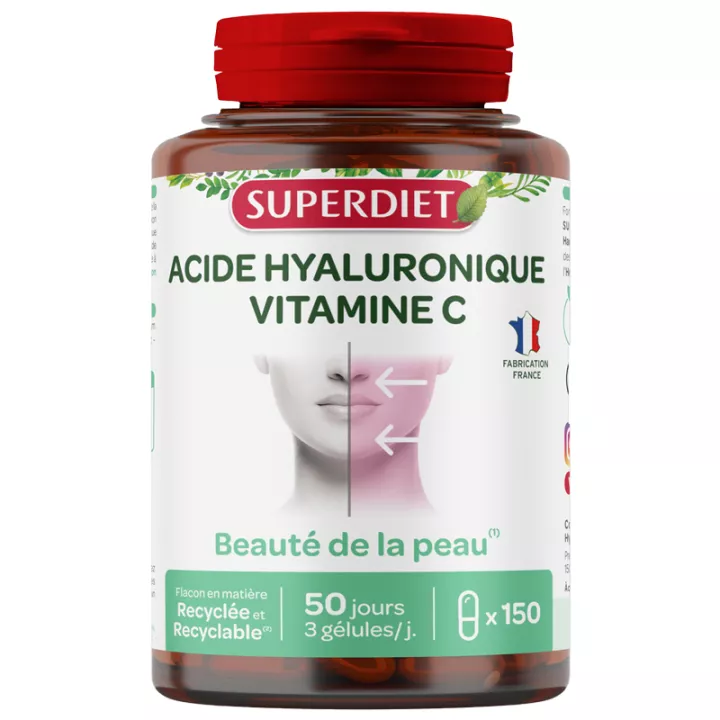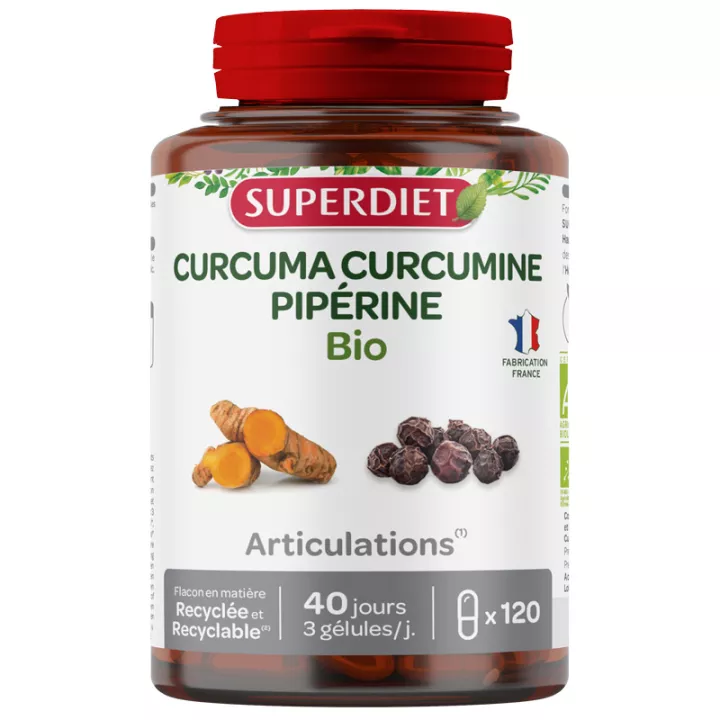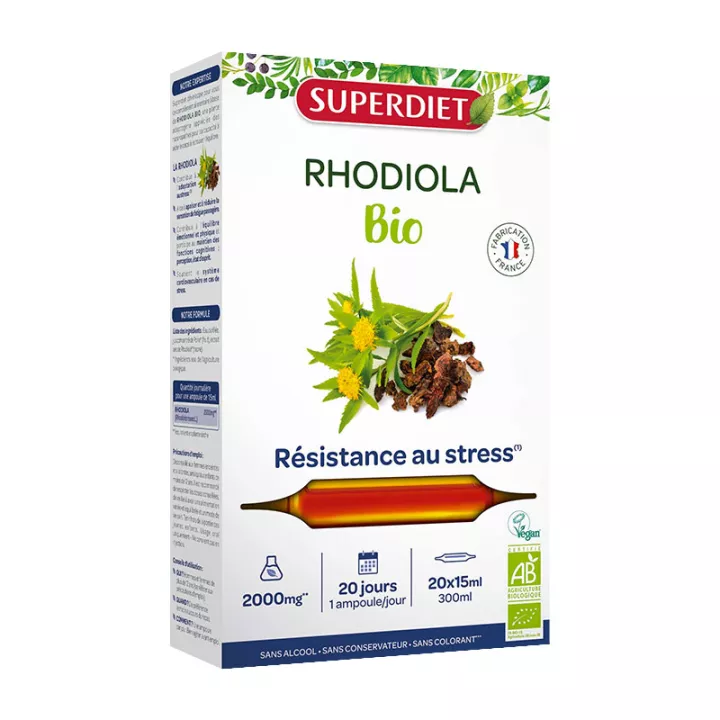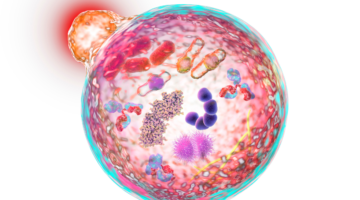What is Superdiet Acerola 1000 Bio used for?
Take 1 chewable tablet a day, preferably in the morning with a meal.
From age 6.
Give your opinion on the advice for use and dosage of Superdiet Acerola 1000 Bio Comprimés à Croquer with our partner Verified opinions after your purchase.
What are the side effects and contraindications?
- Internal use
- Follow dosage instructions
- Store in a clean, dry place away from heat, humidity and light.
- Always keep out of reach of children
- A dietary supplement is not a medicine, and cannot replace a balanced and varied diet and a healthy lifestyle.
What does it contain?
Acerola* juice powder (fruit) titrated in vitamin C, cane sugar*, beet sugar*, rice syrup*, cassava starch*, rice starch*, natural red fruit flavoring*, anti-caking agent: magnesium carbonate.
* Ingredient from organic farming.
| Ingredients |
For 1 tablet |
NRV*** |
| Acerola(Malpighia punicifolia L.) |
1000 mg |
|
| Vitamin C content |
170 mg** |
212% |
** Average quantity
*** Reference nutritional value
Presentation
This dietary supplement from the Superdiet range comes in a box of 24 tablets or a jar of 60 tablets.
Our advice and expert pharmacists' opinions
Vitamin C is an essential health nutrient, involved in many bodily processes such as collagen formation, iron absorption, and optimal immune system function. There are many different sources of vitamin C, including synthetic forms often found in supplements, and natural sources such as acerola. Here's a detailed comparison between chemical (synthetic) vitamin C and vitamin C from acerola:
Origin and production :
- Chemical (synthetic) vitamin C: Synthetic vitamin C is generally produced by a chemical process involving the fermentation of glucose. Most often, this vitamin C is in the form of ascorbic acid. It is molecularly identical to natural vitamin C, but is manufactured in a laboratory.
- Acerola (natural source): Acerola is a small tropical fruit that is extremely rich in natural vitamin C. It contains not only vitamin C, but also a range of other antioxidants and nutrients that act synergistically. Acerola's vitamin C is extracted directly from the fruit.
Composition and synergy :
- Chemical vitamin C: Synthetic ascorbic acid is often isolated, containing only vitamin C itself, with no other complementary compounds found in natural sources.
- Acerola: In addition to vitamin C, acerola contains bioflavonoids, anthocyanins and other antioxidants that can enhance vitamin C absorption and efficacy. These compounds may also offer additional health benefits.
Absorption and efficacy:
- Chemical vitamin C: Although the synthetic form of vitamin C is effective, some studies suggest that natural forms of vitamin C may be better absorbed by the body due to the presence of synergistic compounds.
- Acerola: The presence of bioflavonoids and other natural compounds in acerola may enhance the body's absorption of vitamin C, making natural vitamin C potentially more effective for certain biological processes.
Health impact and use:
- Chemical vitamin C: It is widely used in supplements for its relatively low cost and stability. It is effective in preventing and treating scurvy, as well as supporting the immune system.
- Acerola: Vitamin C from acerola is often preferred by those seeking more natural sources of nutrients. Because of its extra compounds, it may offer additional antioxidant and overall health benefits.
The choice between chemical vitamin C and acerola can depend on a number of factors, including personal preference, specific health needs, and the search for a more natural source of nutrients. While both forms are effective in providing the necessary intake of vitamin C, acerola offers the advantage of a natural complex of nutrients that may be more beneficial overall. It is always advisable to discuss with a health professional which type of vitamin C is best suited to your specific needs.

